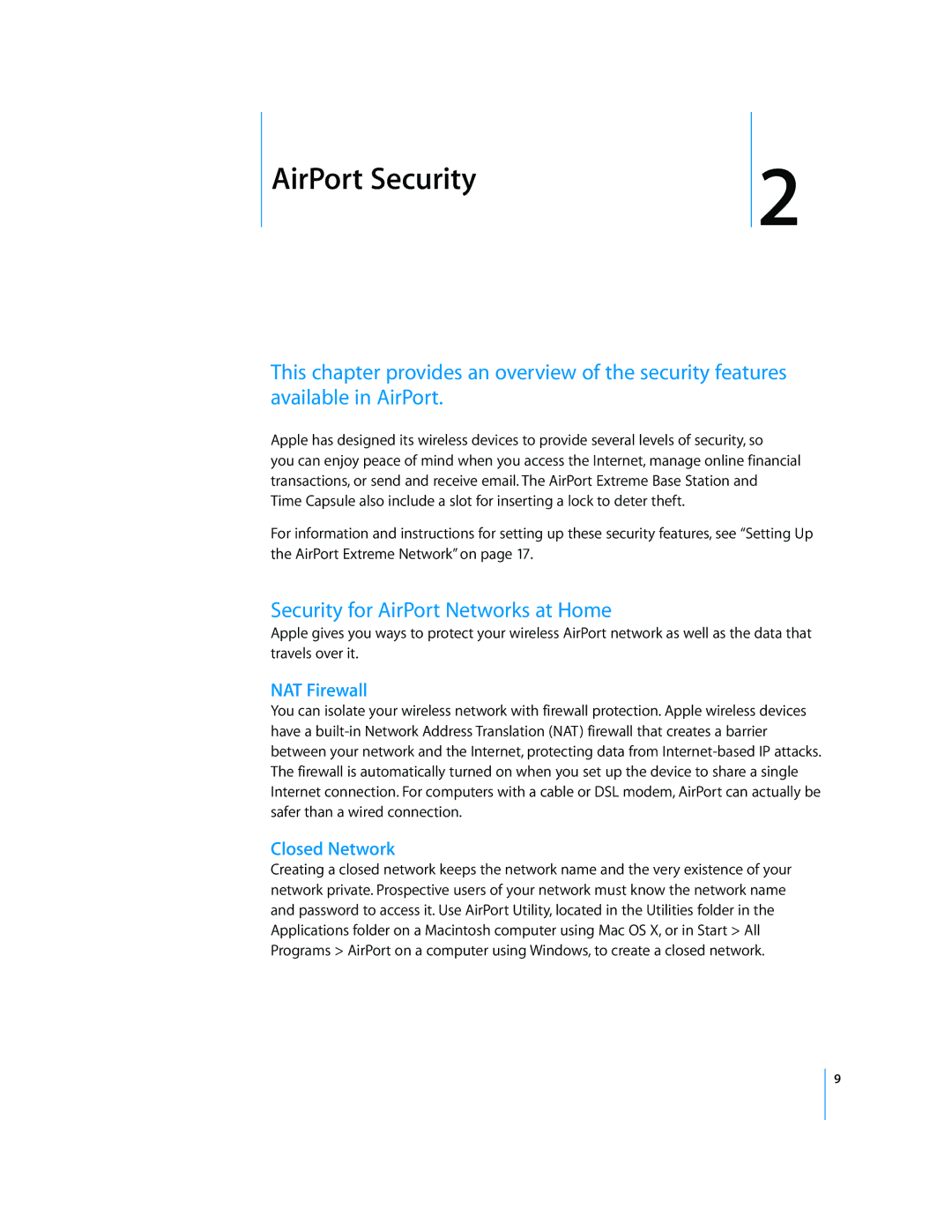AirPort Security | 2 |
|
This chapter provides an overview of the security features available in AirPort.
Apple has designed its wireless devices to provide several levels of security, so
you can enjoy peace of mind when you access the Internet, manage online financial transactions, or send and receive email. The AirPort Extreme Base Station and Time Capsule also include a slot for inserting a lock to deter theft.
For information and instructions for setting up these security features, see “Setting Up the AirPort Extreme Network” on page 17.
Security for AirPort Networks at Home
Apple gives you ways to protect your wireless AirPort network as well as the data that travels over it.
NAT Firewall
You can isolate your wireless network with firewall protection. Apple wireless devices have a
Closed Network
Creating a closed network keeps the network name and the very existence of your network private. Prospective users of your network must know the network name and password to access it. Use AirPort Utility, located in the Utilities folder in the Applications folder on a Macintosh computer using Mac OS X, or in Start > All Programs > AirPort on a computer using Windows, to create a closed network.
9
